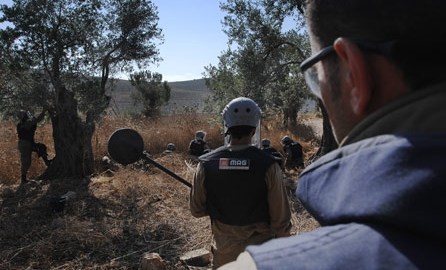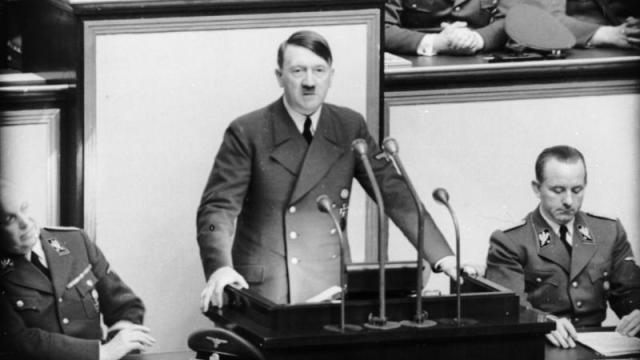Clearing Cluster Bombs in Lebanon

I am standing atop a gorgeous valley of olive groves and goat herds. Black-veiled women lug baskets of fruit around town, whose buildings are still pockmarked with mortar fire. This is Yuhmor, a hilltop hamlet in southern Lebanon that sits high above the Litani River. It is also the site of hundreds of thousands of unexploded submunitions, left over from the July 2006 war with Israel.
Lebanese officials here told me that Israel dropped well over a million cluster bombs on the region. These are small canisters that often fail to explode. They now litter the countryside and go off when children happen upon them, thinking they are soda cans. Since 2006, hundreds of Lebanese have either been killed or crippled by the bomblets.
Meet Ali Muorad. He is a go-lucky 26-year-old Shiite with slicked-back hair, a wide smile, and a prosthetic leg. Earlier this year his right leg was blown to shreds while working with Mines Advisory Group (MAG), an organization devoted to clearing unexploded ordnance left over from the war. Doctors said he might never walk again. Eight months later, he is taking me around town (yes, he can now drive), educating locals about the bombs, and showing me the worst-affected areas.
He is not embittered by the experience but rather humbled. He took the job not out of any humanitarian impulse. He needed a paycheck. Now, though, Ali says he is inspired to educate Lebanese about the dangers these submunitions pose. “After hearing the people pray for us and thanking us,” he told me, “I now feel like I have a mission to do.” He also says it’s easier to make villagers understand the dangers these bombs pose. “I don’t need photos anymore of victims. I just point to my prosthetic leg.” Ali lets out a laugh as we head back to MAG headquarters.





